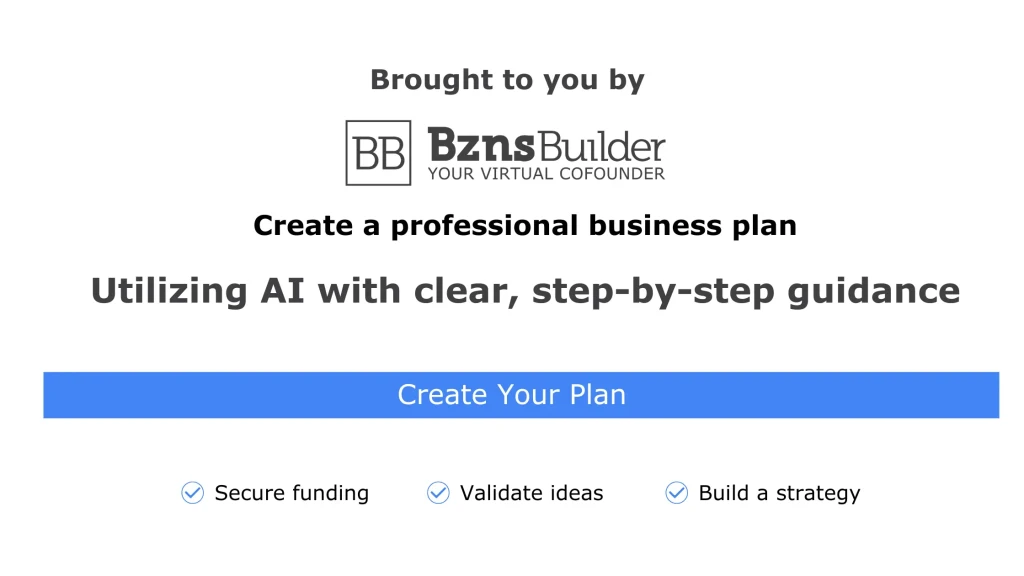Steps to Successfully Sell Your Business

Selling a business is often as intricate and demanding as starting one. It’s not just about finding a buyer; it’s about presenting your business in the best possible light, ensuring legal and financial preparedness, and navigating the emotional complexities of letting go of something you’ve worked hard to build. By taking the right steps, you can maximize your business’s value and achieve a smooth, successful transition.
This comprehensive guide delves into every stage of the process—from preparation to finalization. You’ll learn what actions to take before the sale to attract serious buyers, what strategies to implement during negotiations to secure the best terms, and how to plan your exit for a seamless handover. With careful planning and the right approach, you can confidently move forward to your next chapter.
Disclaimer: All content in this guide is intended to be general information, and nothing constitutes legal advice. For specific legal guidance, consult a qualified professional.
1. Know Why You’re Selling
Understanding your motivation for selling is not only a critical first step but also a determinant of the sale’s success. Buyers are bound to ask, “Why are you selling?” and your answer can set the tone for negotiations. Knowing your “why” allows you to develop a strategy that aligns with your goals and helps position your business attractively in the market. Here are some common motivations for selling:
- Retirement: If you’re retiring, you’ve likely spent years building your business and want to ensure its continuity and success. Many retiring owners stay involved temporarily to guide the transition and maintain the business’s legacy.
- Burnout: Running a business is demanding, and it’s natural to reach a point where you’re ready to step away. A clear and honest discussion about burnout can help set realistic expectations with potential buyers.
- Market Conditions: Just as in real estate, timing is everything. Selling when the market demand for businesses like yours is high can significantly boost your sale price. Staying informed about industry trends ensures you’re making a strategic decision.
- Financial Need: Financial challenges can drive a decision to sell, but selling under pressure often leads to undervaluation. Before committing, consider alternative solutions like securing a business loan or bringing on investors to bridge the gap.
- Strategic Growth Opportunities: Selling doesn’t always mean stepping away. Sometimes, it’s about finding the right partner to bring fresh resources, expertise, or capital to accelerate growth. This type of strategic sale can unlock the next phase of success for your business.
- Personal Reasons: Personal circumstances such as a desire for better work-life balance, family priorities, or career shifts can lead to a sale. These reasons are valid and often resonate well with empathetic buyers who appreciate transparency.
Each of these motivations shapes how you approach the sale and interact with potential buyers. Reflecting on your reasons not only helps you prepare but also ensures you’re confident and clear throughout the process.
For more insights, explore our guide on How to Know When to Close Your Business and Start Over.
2. Compile Financial Statements and Tax Returns
Comprehensive and well-organized financial records are the cornerstone of a successful business sale. These records not only demonstrate your company’s financial health but also tell the story of its profitability, growth trajectory, and potential. Clear, accurate, and accessible financial documentation builds trust with prospective buyers and sets the stage for meaningful negotiations.
Key Financial Documents to Prepare
Buyers will scrutinize your business’s financial performance, often requesting detailed data from the past three to five years. Essential documents include:
- Profit and Loss Statements: Highlighting revenues, expenses, and net income over time.
- Balance Sheets: Providing a snapshot of assets, liabilities, and equity.
- Cash Flow Statements: Demonstrating how money flows in and out of your business.
- Tax Returns: Offering credibility and a comprehensive view of your financial standing.
- Debt and Loan Documentation: Showing outstanding obligations and repayment terms.
Professional Review and Verification
Engage a licensed accountant or financial advisor to review these documents. Their expertise ensures accuracy and completeness, helping you identify and address potential red flags before buyers do. They can also help you standardize financial reporting if your records span multiple formats or systems.
Operational Insights and Business Model Summary
While financials provide the quantitative picture, a qualitative narrative is equally important. Prepare a clear summary of your business model, including:
- Revenue Streams: Explaining how your business generates income.
- Operational Processes: Outlining day-to-day activities and key workflows.
- Customer Base and Market Position: Highlighting your target audience, competitive advantages, and market share.
Leverage Existing Business Plans
If you have a detailed business plan, much of this work may already be done. Review and update it to reflect the current state of your business. If you lack a formal business plan, consider using a one-page business plan format to quickly organize essential information.
Benefits of Strong Financial Preparation
Presenting organized financials and operational insights not only instills confidence in buyers but also accelerates the sales process. A well-prepared package reduces the likelihood of delays during due diligence and enhances your credibility, positioning you for favorable negotiations and terms.
By investing the time to compile, verify, and present your financial data effectively, you’ll maximize your business’s perceived value and improve the chances of a smooth, profitable sale.
3. Get a Business Valuation
Determining the economic value of your business is a pivotal step in the sales process. A professional valuation provides a clear, unbiased assessment of your business’s worth, which not only helps you set a realistic asking price but also ensures credibility during negotiations. While it’s possible to conduct a valuation yourself, hiring a professional appraiser is highly recommended for accuracy and reliability.
What Does a Business Valuation Involve?
An appraiser evaluates various aspects of your business to arrive at an estimated value. Key components include:
- Financial Statements: Analyzing profit, revenue, expenses, and cash flow trends.
- Tangible and Intangible Assets: Assessing assets such as property, equipment, and intellectual property (e.g., patents, trademarks, and brand value).
- Customer Base: Reviewing the size, diversity, and loyalty of your customer base.
- Operational Efficiency: Evaluating how streamlined and effective your operations are.
- Management Team: Assessing the strength, experience, and leadership capabilities of your management team.
External Factors in Valuation
In addition to internal business metrics, external factors play a significant role in determining value. These include:
- Market Conditions: Current demand for businesses in your industry and economic climate.
- Industry Trends: Emerging trends and future growth potential within your sector.
- Competitive Landscape: The positioning of your business relative to competitors.
Using the Valuation to Set Your Asking Price
The final valuation provides a range or specific figure that serves as a foundation for setting your asking price. Keep in mind that this number is a starting point—buyers may negotiate based on their own assessments and due diligence findings. A professional valuation ensures you’re starting negotiations from an informed and well-substantiated position, increasing the likelihood of achieving your desired outcome.
4. Hire a Broker
Hiring a professional broker or investment bank can significantly simplify the process of selling your business. With their expertise, they can guide you through every step, handle the complexities, and ensure you achieve the best possible deal. Here’s how a broker can assist:
Key Services Provided by a Broker
- Market Analysis: Assessing the value of your business based on current market conditions, industry trends, and competitive benchmarks.
- Targeted Marketing: Promoting your business to potential buyers through a mix of channels, including industry networks, online listings, and direct outreach.
- Screening Buyers: Conducting due diligence to verify that potential buyers are serious, financially capable, and aligned with your business goals.
- Negotiation Support: Representing your interests during negotiations to secure the best terms and conditions for the sale.
- Documentation Management: Handling the extensive paperwork involved, including contracts, agreements, and regulatory filings.
- Closing the Sale: Facilitating the final stages of the transaction to ensure a seamless handover and compliance with legal requirements.
When to Consider Hiring a Broker
While hiring a broker can be costly, their expertise often saves time, prevents costly mistakes, and ensures a smoother transaction. If you’re selling to a family member, employee, or trusted party, you may consider handling the process yourself. However, even in these cases, involving a lawyer to review and finalize the documentation is essential to ensure everything is legally binding.
Tips for Choosing the Right Broker
-
Be cautious of brokers who demand large upfront fees.
-
Avoid those who make overly optimistic valuations without substantial evidence.
-
Request references from previous clients to verify their experience and success rate.
By hiring a qualified broker, you’ll gain a trusted partner to navigate the sales process, protect your interests, and secure a deal that aligns with your goals and expectations.
5. Find a Buyer
Finding the right buyer is often one of the most challenging aspects of selling a business. Even with a broker’s support, identifying the right fit and finalizing a sale can take months or even years. To keep the process moving efficiently and increase your chances of success, consider the following best practices:
Best Practices for Finding Buyers
- Leverage Your Network: Tap into your professional network, including industry peers, suppliers, and even competitors. Sometimes, the best leads come from trusted connections.
- Use Multiple Channels: Cast a wide net by promoting your business on business-for-sale websites, industry publications, and social media platforms. Diversifying your outreach ensures greater visibility.
- Prepare an Information Packet: Create a concise yet detailed document about your business. Include financial summaries, operational details, and growth potential. A one-page business plan format can be an excellent tool for this purpose.
- Pre-Qualify Buyers: Before entering into serious discussions, ensure potential buyers are financially capable of making the purchase. This step saves time and protects sensitive business information.
- Stay Engaged: Even with a broker handling much of the process, remain involved. Your passion and knowledge about the business can be key selling points for potential buyers.
- Consider Seller Financing: Offering to finance a portion of the sale can attract a broader pool of buyers. Ensure you’re comfortable with the terms and understand the risks involved.
The Advantage of Multiple Offers
Ideally, you’ll receive interest from multiple buyers. This not only increases your chances of closing a deal but also gives you leverage to negotiate better terms. If a deal falls through with one buyer, you’ll have other options to pursue.
For more strategies on preparing your business for acquisition, check out our guide on How to Position Your Business to Be Acquired.
6. Finalize a Sales Agreement
Once you’ve reached a potential agreement with a buyer, it’s time to get all the necessary documents and legal details in order. This stage is critical for safeguarding your interests and ensuring a seamless transition of ownership. Collaborate with a qualified lawyer to navigate this process effectively. Here’s what to expect:
Essential Documentation
- Letter of Intent (LOI): A preliminary document outlining the basic terms and conditions of the sale. While not legally binding, it sets the stage for the formal agreement.
- Purchase Agreement: The primary legal document detailing the terms and conditions of the sale. It includes the sale price, assets being sold, liabilities being assumed, and any contingencies.
- Bill of Sale: A document confirming the transfer of ownership and itemizing the assets included in the sale.
- Non-Compete Agreement: Buyers often require assurance that the seller won’t start a competing business within a specific time frame and geographic area.
- Employee and Supplier Agreements: New contracts or agreements may need to be drafted if the buyer intends to retain current employees or suppliers.
Key Legal Considerations
- Due Diligence: The buyer will conduct a thorough investigation of your business’s financial records, contracts, assets, and other critical documents to validate the purchase.
- Liabilities: Clearly define which liabilities the buyer will assume and which will remain with the seller.
- Warranties and Representations: These are statements made by the seller about the current state and history of the business. Any breach of these statements can lead to legal consequences.
- Indemnification Provisions: These clauses protect the buyer from future liabilities arising from the business’s past activities.
The Sales Process
- Escrow: To ensure both parties fulfill their obligations, funds are often placed in escrow until all conditions are met.
- Financing: The seller may need to provide documentation or cooperate with the buyer’s lender during this stage.
- Transition Period: The seller may remain involved for a specified period to assist with training, introductions to key clients, or operational guidance.
- Closing: This is the final step where all documents are signed, funds are transferred, and ownership is officially changed.
- Post-Sale Notifications: Notify all stakeholders, including employees, clients, suppliers, and relevant government entities, about the change in ownership.
Finalizing the sales agreement is a complex process that requires attention to detail and professional guidance. By addressing all legal, financial, and operational aspects, you can ensure a smooth and successful transition to the new owner.
7. Plan How You’ll Manage Funds from the Sale
Successfully selling your business isn’t the end of the journey—it’s the beginning of a new chapter. To make the most of the profits from the sale, careful financial planning is essential. Whether you want to start another business, support charitable causes, or enjoy the rewards of your hard work, a well-thought-out plan can help you achieve your long-term goals.
Financial Considerations Post-Sale
- Capital Gains Tax: The sale will likely result in capital gains, which are taxed differently than regular income. Understanding the tax implications can help you minimize liabilities.
- Installment Sales: If you receive payments over time, you might qualify for installment sale treatment, allowing you to spread the tax burden across several years.
- State Taxes: Depending on your business’s location, you may be subject to state-specific sales taxes.
- Debt Repayment: Use a portion of the proceeds to settle any outstanding debts, ensuring a clean financial slate.
Planning for the Future
- Investment Strategies: Work with financial advisors to explore investment opportunities that align with your goals. Whether it’s stocks, real estate, or new ventures, diversification can help secure your financial future.
- Philanthropy: Consider supporting charitable causes or setting up a foundation to give back to the community.
- Personal Goals: Allocate funds for lifestyle improvements, travel, or other personal aspirations that you’ve postponed.
Professional Advice
Don’t rush into decisions about how to use your newfound wealth. Consulting with financial and tax advisors ensures your plan is optimized for your unique circumstances. They can provide insights into:
-
Tax-efficient investment options.
-
Long-term financial planning tailored to your needs.
-
Strategies to preserve and grow your wealth.
By taking the time to assess your financial situation and make informed decisions, you can turn the sale of your business into a foundation for lasting success and fulfillment.
Additional Options to Exit Your Business
Selling a business is a common exit strategy—but it’s not the only option. Depending on your goals and circumstances, here are some alternative ways to exit:
1. Merger
Combining your business with another can offer strategic benefits, such as expanding market share or leveraging additional resources. The key to a successful merger is finding a partner whose objectives and company culture align with yours. Once the merger is complete, you may choose to step back and let other leadership take over.
2. Transfer Ownership
If you have family members, heirs, or trusted employees interested in taking over the business, transferring ownership to them can be a meaningful option. This approach eliminates the lengthy process of finding an external buyer and ensures continuity for family-owned or legacy enterprises.
3. Go Public
Though less common for small businesses, initiating an initial public offering (IPO) is another way to exit. By going public, you can raise capital while gradually selling your stake, potentially creating opportunities for growth and liquidity.
4. Liquidation
If your business is not profitable or you are unable to find a buyer, liquidating its assets may be the best option. While this strategy often yields lower returns than a sale or merger, it allows you to recoup some value and close out operations cleanly.
Exploring these alternative strategies can help you find the best path forward based on your specific needs, business structure, and long-term goals.
Preparing to Sell Your Business
Deciding to sell your business is a significant milestone in your entrepreneurial journey. It’s not a decision to be made lightly, and proper planning is crucial to achieving your desired outcome. By preparing in advance, you’ll increase your chances of securing your asking price and ensuring a smooth transaction.
Essential Preparation Steps
- Create a Business Strategy: Establish clear objectives and demonstrate the long-term viability of your business.
- Manage During a Crisis: Show resilience and the ability to adapt during challenging times to build buyer confidence.
- Set Business Goals: Define achievable targets to highlight your business’s growth potential.
For more guidance, explore our other business management resources to help you prepare your business for a successful sale.







